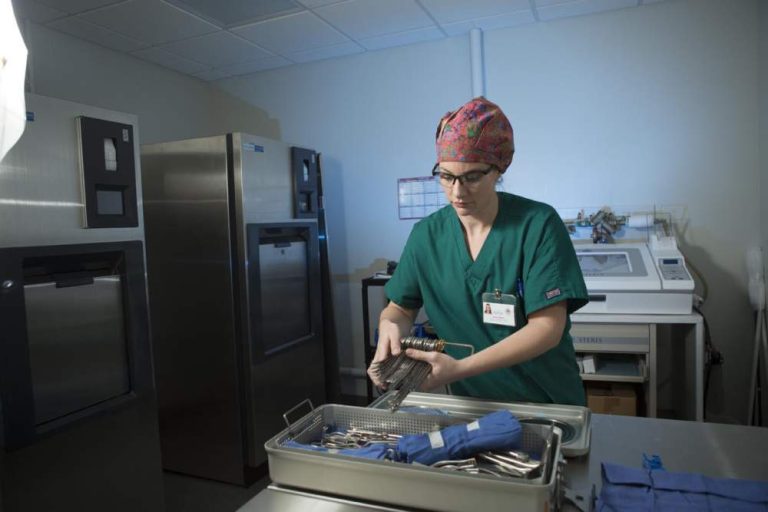Innovation Boosts Nashville, TN’s Health Care Industry
Discover what makes health care information technology in Nashville a growing industry.

As home to 18 publicly traded health care companies and more than 400 health-care businesses, Nashville has long felt the impact of the industry on its economy – to the tune of some $40 billion a year – and the industry’s influence has spread far beyond the hospital walls.
A 2016 Brookings Institution study found that the region’s traditional strengths in health care management give it a significant edge when attracting health care IT, and its strong health care ecosystem also provides a deep domain of knowledge for clinical and operational expertise that leads to innovation. The study notes that establishments in the 13 HIT-related industries account for as many as 106,000 jobs and nearly $12.6 billion in economic output for the Nashville metro area, encompassing more than 10 percent of both employment and Gross Metropolitan Product.
Leveraging a Legacy
A wealth of major players such as LifePoint Health, St. Thomas Health and Vanderbilt University Medical Center anchor the region’s health care industry.
“Due to significant recent regulatory and reimbursement shifts, they are shifting their focus to innovative cloud technologies such as mobile, analytics, big data and information sharing. This shift fosters innovation, ” says Bill Brown, CEO of Entrada, a Williamson County-based provider of integrated mobile solutions that improve health care efficiencies and outcomes. “Nashville, as a whole, has a young, vibrant and growing creative community. Tennessee is also a business friendly state with a low tax structure and high quality of life, and is located in a great central geographic region, all of which are very appealing to companies.”
Hayley Hovious, president of the Nashville Health Care Council, says health care entrepreneurs are also attracted to the region’s diverse network of health professionals.
“Being in Nashville gives you access to such a deep well of health care knowledge that is going to help you make your business successful,” Hovious says. “For example, health care executives here already have an understanding of the regulatory issues involved, payment issues involved, how care is actually delivered. If you’re an entrepreneur, that is invaluable, and if you’re an innovator, that kind of experience is invaluable to be able to tap into.”
Making Capital Investments
Access to capital is another factor impacting start-up growth, and Brian Moyer, president and CEO of the Nashville Technology Council, says the venture capital market for health care is growing, with close to $1 billion being invested in Nashville area health care companies since 2005.
“Organizations like the Nashville Entrepreneur Center, Nashville Capital Network, Jumpstart Foundry and the Wond’ry at Vanderbilt University are fostering innovation with dedicated health care programming and guidance,” Moyers says. “Innovators are leveraging our health experts to address industry challenges, like exploring the applicability of blockchain technology to ensure health information is secure and tamper-proof.”
Formerly named the Innovation Center at Vanderbilt, the Wond’ry helps students find homes for their ideas and innovations.
“We help take new ideas and solutions and we further shape them, mold them, test them, validate them. Ultimately, once that vetting is complete, we find a home for those ideas and those concepts now being turned into innovations, inventions, new entrepreneurial activities,” says Robert Grajewski, executive director of the Wond’ry. “We find a home for those new activities to further blossom and grow, through our relationships with the accelerators, incubators, Angel community, corporations in Nashville and beyond.”
Into the Talent Pool
As a teaching hospital and research institution, Grajewski says, Vanderbilt also plays a role in health care innovation through talent transfer. The area offers 21 accredited four-year and postgraduate institutions as well as medical schools and teaching hospitals. Studies have shown that academic medical centers serve as ideal locations for start-ups to test health care innovations, in part because of the knowledge transfer and availability of a highly skilled workforce.
“Through our programs, through our processes, through our workshops and through our academic endeavors, our goal is to train the next generation of health care leaders to be more entrepreneurial minded and ultimately approach these problems in health care with the mindset and insights to most efficiently address them and team together in trans-institutional collaborations to come up with those solutions, both while in school as well as when they graduate and take that knowledge and learning with them,” Grajewski says.



